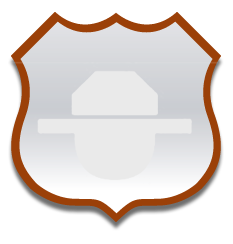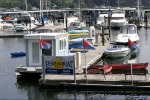FORT WARD STATE PARK
Fort Ward State Park is a 137-acre marine park with 4,300 feet of saltwater shoreline on Rich Passage. Many of the structures in the park reflect the historic military significance of the area, but the park is well developed for day use. There is an underwater park for scuba divers, a two-lane boat ramp and a long, rocky beach along Rich Passage. Fort Ward is located along Rich Passage with views of the Olympic Mountains and various marine-life habitats. The park is 137 acres of dense forest and features a rocky beach along the Puget Sound.
Park hours/updates:
Summer: 8 a.m. to dusk.Winter: 8 a.m. to dusk; upper day-use area closed Oct 18, reopens April 8.
Wildlife Mammals Birds Fish & Sea Life? Bobcats? Chipmunks? Coyotes? Deer or Elk? Foxes? Otters? Rabbits? Raccoons? Skunks? Squirrels? Weasels? Crows or Ravens? Doves or Pigeons? Ducks? Eagles? Geese? Grouse? Gulls? Hawks? Herons? Hummingbirds? Jays? Ospreys? Owls? Pheasants? Quail? Woodpeckers? Wrens ?Clams? Crabs? Mussels? Octopuses? Oysters? Scallops? Sea Birds? Sea Cucumbers? Seals? Shellfish? Shrimp? Squid? Starfish? Whales? Bass? Cod? Eel? Perch? Red Snapper? Salmon? Shark? Steelhead? Tuna
Environmental Features Physical Features Plant Life? Cedar? Douglas Fir? Hemlock? Spruce? Yew? Alder? Apple? Ash? Cherry? Maple? Daisy? Foxglove? Berries? Ferns? Moss or Lichens? Seaweed? Thistle? Poison Oak
After World War II, the U.S. Navy used a radio tower (once located adjacent to the park and east of the upper picnic area) to send messages to Navy Command in Seattle at Pier 91.
In 1903, Fort Ward was offically commissioned as a seacoast fort with the primary objective of protecting the Bremerton Naval Shipyard. Two gun batteries are located in the park. During World War II, the navy used the fort as a radio station and training school for communication personnel and installed a submarine net across Rich Passage. In 1958, the navy decommissioned the fort, and State Parks purchased Fort Ward in 1960.
A Discover Pass is required for vehicle access to Washington state parks for day use. For more information about the Discover Pass and exemptions, please visit the
Discover Pass web page.
Available in the area ? Groceries? Pay phone
This is a day-use park, but one water trail campsite is available only to those arriving by human-powered watercraft. The campsite is available on a first-come, first-served basis.


